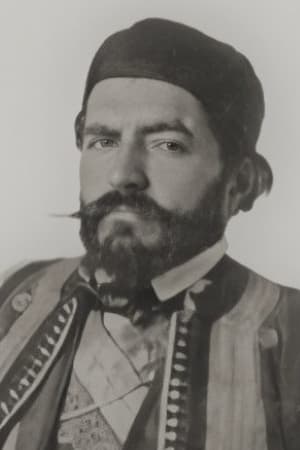Personal Info
Known For Writing
Known Credits 1
Gender Male
Birthday November 13, 1813
Day of Death October 31, 1851 (37 years old)
Place of Birth Njeguši, Prince-Bishopric of Montenegro [now: Montenegro]
Also Known As
- Petar Petrović Njegoš
- Петар II Петровић Његош
- Петар Петровић Његош
Content Score
50
Still needs a little work.
Login to report an issue
Biography
Petar II Petrović-Njegoš (1813–1851), commonly referred to simply as Njegoš, was a Prince-Bishop of Montenegro, poet and philosopher. He is well known for his epic poem Gorski vijenac (The Mountain Wreath), which is considered a masterpiece of South Slavic literature, and the national epic of Montenegro, Serbia and former Yugoslavia. Njegoš was twice declared Yugoslavia's national poet, by the royal government in the 1920s and by the communist authorities following the Second World War.
Despite being Montenegro's ruler for more than twenty years, Njegoš is best known for his literary output. His writings drew on local folklore, lyric poetry and biblical stories. He began writing poetry at the age of seventeen, and his literary opus includes Glas kamenštaka (The Voice of a Stone-Cutter; 1833), Lijek jarosti turske (The Cure for Turkish Fury; 1834), Ogledalo srpsko (The Serbian Mirror; 1835), Luča mikrokozma (The Ray of the Microcosm; 1845), Gorski vijenac (The Mountain Wreath; 1847), Lažni car Šćepan mali (The False Tsar Stephen the Little; 1851) and, posthumously, Slobodijada (The Freedom Song; 1854).
Gorski vijenac, which virtually all critics regard as his finest work, is also his most famous, having been reprinted more than 120 times between 1847 and 1996. By 1913, Gorski vijenac had been translated into ten different languages. Gorski vijenac became a source of considerable controversy during and after the Yugoslav Wars, when critics began to re-examine the text within the context of the conflicts' many atrocities. Njegoš's works have been removed from school curricula in Bosnia and Herzegovina so as not to incite ethnic tensions, given the divisive nature of some of his works.
Petar II Petrović-Njegoš (1813–1851), commonly referred to simply as Njegoš, was a Prince-Bishop of Montenegro, poet and philosopher. He is well known for his epic poem Gorski vijenac (The Mountain Wreath), which is considered a masterpiece of South Slavic literature, and the national epic of Montenegro, Serbia and former Yugoslavia. Njegoš was twice declared Yugoslavia's national poet, by the royal government in the 1920s and by the communist authorities following the Second World War.
Despite being Montenegro's ruler for more than twenty years, Njegoš is best known for his literary output. His writings drew on local folklore, lyric poetry and biblical stories. He began writing poetry at the age of seventeen, and his literary opus includes Glas kamenštaka (The Voice of a Stone-Cutter; 1833), Lijek jarosti turske (The Cure for Turkish Fury; 1834), Ogledalo srpsko (The Serbian Mirror; 1835), Luča mikrokozma (The Ray of the Microcosm; 1845), Gorski vijenac (The Mountain Wreath; 1847), Lažni car Šćepan mali (The False Tsar Stephen the Little; 1851) and, posthumously, Slobodijada (The Freedom Song; 1854).
Gorski vijenac, which virtually all critics regard as his finest work, is also his most famous, having been reprinted more than 120 times between 1847 and 1996. By 1913, Gorski vijenac had been translated into ten different languages. Gorski vijenac became a source of considerable controversy during and after the Yugoslav Wars, when critics began to re-examine the text within the context of the conflicts' many atrocities. Njegoš's works have been removed from school curricula in Bosnia and Herzegovina so as not to incite ethnic tensions, given the divisive nature of some of his works.
Writing
|
